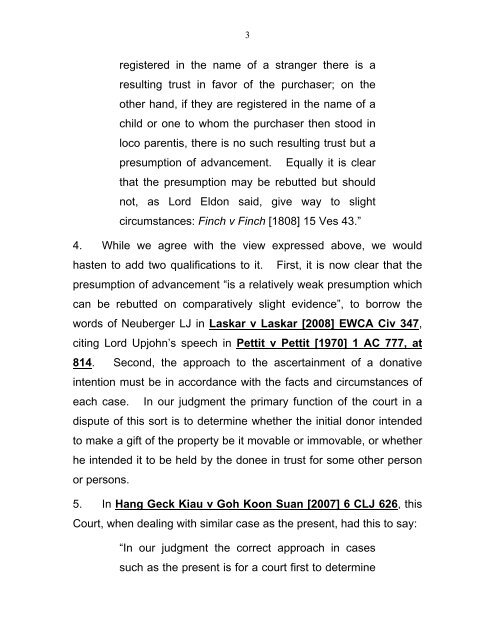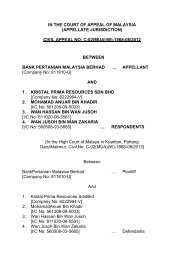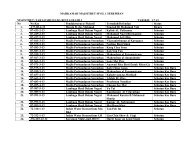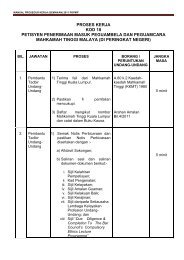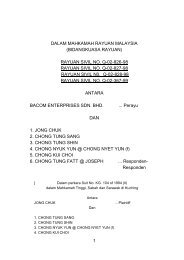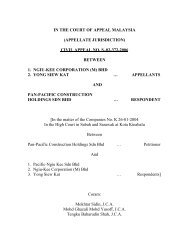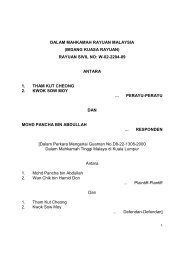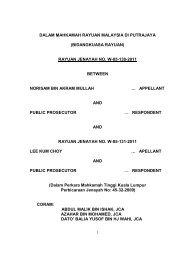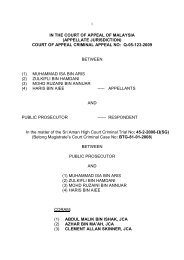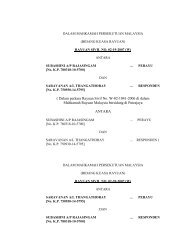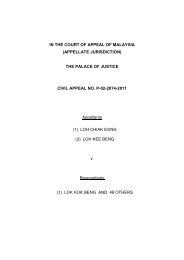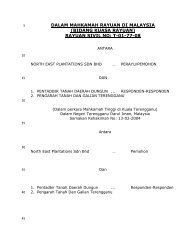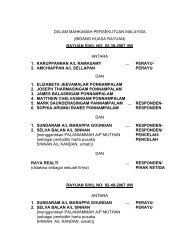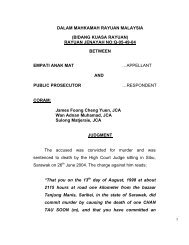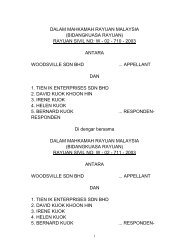rayuan sivil no. j – 02– 641 – 2006 antara ng see liang
rayuan sivil no. j – 02– 641 – 2006 antara ng see liang
rayuan sivil no. j – 02– 641 – 2006 antara ng see liang
Create successful ePaper yourself
Turn your PDF publications into a flip-book with our unique Google optimized e-Paper software.
3<br />
registered in the name of a stra<strong>ng</strong>er there is a<br />
resulti<strong>ng</strong> trust in favor of the purchaser; on the<br />
other hand, if they are registered in the name of a<br />
child or one to whom the purchaser then stood in<br />
loco parentis, there is <stro<strong>ng</strong>>no</stro<strong>ng</strong>> such resulti<strong>ng</strong> trust but a<br />
presumption of advancement. Equally it is clear<br />
that the presumption may be rebutted but should<br />
<stro<strong>ng</strong>>no</stro<strong>ng</strong>>t, as Lord Eldon said, give way to slight<br />
circumstances: Finch v Finch [1808] 15 Ves 43.”<br />
4. While we agree with the view expressed above, we would<br />
hasten to add two qualifications to it. First, it is <stro<strong>ng</strong>>no</stro<strong>ng</strong>>w clear that the<br />
presumption of advancement “is a relatively weak presumption which<br />
can be rebutted on comparatively slight evidence”, to borrow the<br />
words of Neuberger LJ in Laskar v Laskar [2008] EWCA Civ 347,<br />
citi<strong>ng</strong> Lord Upjohn’s speech in Pettit v Pettit [1970] 1 AC 777, at<br />
814. Second, the approach to the ascertainment of a donative<br />
intention must be in accordance with the facts and circumstances of<br />
each case. In our judgment the primary function of the court in a<br />
dispute of this sort is to determine whether the initial do<stro<strong>ng</strong>>no</stro<strong>ng</strong>>r intended<br />
to make a gift of the property be it movable or immovable, or whether<br />
he intended it to be held by the donee in trust for some other person<br />
or persons.<br />
5. In Ha<strong>ng</strong> Geck Kiau v Goh Koon Suan [2007] 6 CLJ 626, this<br />
Court, when deali<strong>ng</strong> with similar case as the present, had this to say:<br />
“In our judgment the correct approach in cases<br />
such as the present is for a court first to determine


